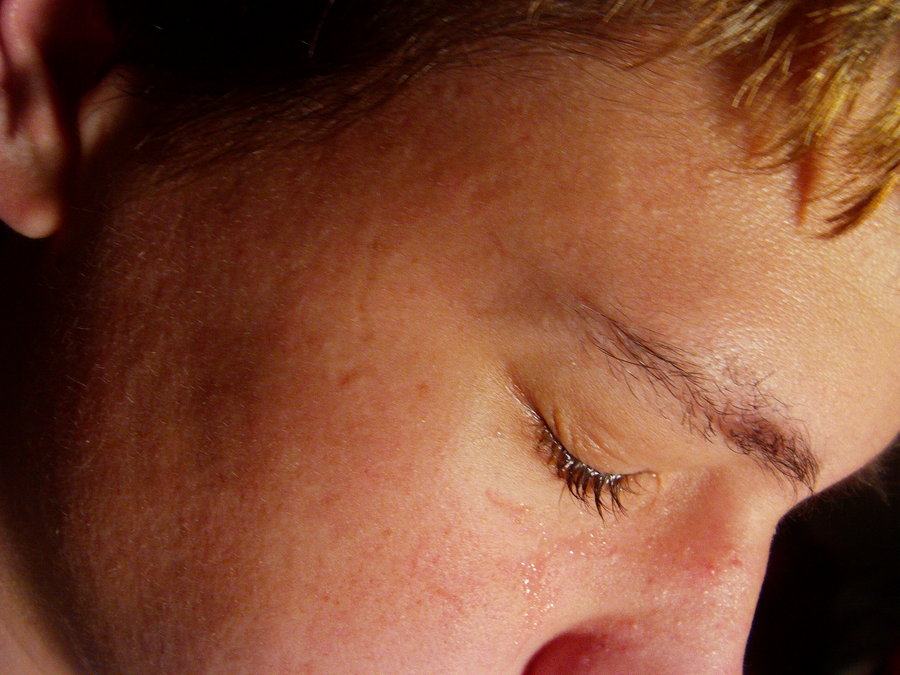
Many people consider drinking alcohol as a way to relax and unwind from a stressful day at work. According to one poll, almost two-thirds of people use alcohol to unwind in the evenings. [1] The reality is that for many, alcohol may very likely lead to feeling depressed or increased anxiety.
Alcohol is a depressant, meaning that it slows down brain functioning and activity. When taken in large enough doses, you see this slowing down evidenced by slurred speech, slow reactions, and unbalanced movement.
And although the goal of drinking may be to relax or escape unpleasant emotions, once the initial improvement in mood wears off, depression and anxiety can worsen, leading to a cycle of drinking, feeling poorly, and more drinking.
Research is showing there is a close link between alcohol and depression. WebMD reports that nearly one-third of people with major depression also have an alcohol problem. Similarly, depressed kids are more likely to have later problems with alcohol, and adolescents who have had an episode of major depression are two times as likely to begin drinking compared to their peers. [2]
People already feeling depressed and drink too much are more likely to consider suicide or self-harm. Research in Scotland shows that over half of the people who are hospitalized for self-harming behaviors said they had used alcohol just before or during the self-harm. [3]
When mental health diagnoses such as depression and anxiety occur together, recovery becomes more complicated by making it more challenging to remain abstinent. Individuals with mental health disorders are also less like to utilize mental health services and are more likely to attempt suicide. [4]
 One study, published by the journal Addiction, found that people who have either alcohol use disorder or depression are twice as likely to develop the other condition. [5]
One study, published by the journal Addiction, found that people who have either alcohol use disorder or depression are twice as likely to develop the other condition. [5]
If you are already taking medication for depression, alcohol use can have adverse effects, not to mention, alcohol makes antidepressants less effective. [6] Using alcohol can also intensify the side effects of antidepressants such as drowsiness, dizziness, and problems with coordination.
Additionally, if you are experiencing symptoms of depression, including sadness, loss of interest in activities, problems sleeping, fatigue, feeling worthless, concentration problems, suicidal thoughts, and feelings of guilt, you should minimize your drinking or abstain from alcohol altogether. You may find that by eliminating alcohol, many of your symptoms improve.
If you are struggling with alcohol use and depression, reach out to your family and friends, a physician, or contact Alcohol Anonymous.
REFERENCES
[1] Two thirds ‘turn to drink’ to relax in the evening. (2012, July 6). Retrieved February 22, 2020, from https://www.bbc.com/news/health-18724115
[2] Alcohol Use, Abuse, and Depression: Is There a Connection? (2018, November 12). Retrieved February 22, 2020, from https://www.webmd.com/depression/guide/alcohol-and-depresssion#1
[3] Alcohol and mental health. (n.d.). Retrieved February 22, 2020, from https://www.drinkaware.co.uk/alcohol-facts/health-effects-of-alcohol/mental-health/alcohol-and-mental-health/
[4] (Helzer, J. E., & Pryzbeck, T. R. (1988). The co-occurrence of alcoholism with other psychiatric disorders in the general population and its impact on treatment. Journal of Studies on Alcohol, 49(3), 219–224. doi: 10.15288/jsa.1988.49.219.
[5] Boden, J. M., & Fergusson, D. M. (2011). Alcohol and depression. Addiction, 106(5), 906–914. doi: 10.1111/j.1360-0443.2010.03351.x
[6] Watkins, M. (n.d.). Alcohol and Depression: What is the Connection? Retrieved February 22, 2020, from https://americanaddictioncenters.org/alcoholism-treatment/depression
About the Author:
 Travis Stewart, LPC has been mentoring others since 1992 and became a Licensed Professional Counselor in 2005. His counseling approach is relational and creative, helping people understand their story while also building hope for the future. Travis has experience with a wide variety of issues which might lead people to seek out professional counseling help. This includes a special interest in helping those with compulsive and addictive behaviors such as internet and screen addiction, eating disorders, anxiety, and perfectionism. Specifically, he has worked with eating disorders since 2003 and has learned from many of the field’s leading experts. He has worked with hundreds of individuals facing life-threatening eating disorders in all levels of treatment. Travis’ website is wtravisstewart.com
Travis Stewart, LPC has been mentoring others since 1992 and became a Licensed Professional Counselor in 2005. His counseling approach is relational and creative, helping people understand their story while also building hope for the future. Travis has experience with a wide variety of issues which might lead people to seek out professional counseling help. This includes a special interest in helping those with compulsive and addictive behaviors such as internet and screen addiction, eating disorders, anxiety, and perfectionism. Specifically, he has worked with eating disorders since 2003 and has learned from many of the field’s leading experts. He has worked with hundreds of individuals facing life-threatening eating disorders in all levels of treatment. Travis’ website is wtravisstewart.com
The opinions and views of our guest contributors are shared to provide a broad perspective of addictions. These are not necessarily the views of Addiction Hope, but an effort to offer a discussion of various issues by different concerned individuals.
We at Addiction Hope understand that addictions result from multiple physical, emotional, environmental and genetic factors. If you or a loved one are suffering from an addiction, please know that there is hope for you, and seek immediate professional help.
Reviewed and Approved by Jacquelyn Ekern, MS, LPC on March 9, 2020
Published March 9, 2020, on AddictionHope.com
